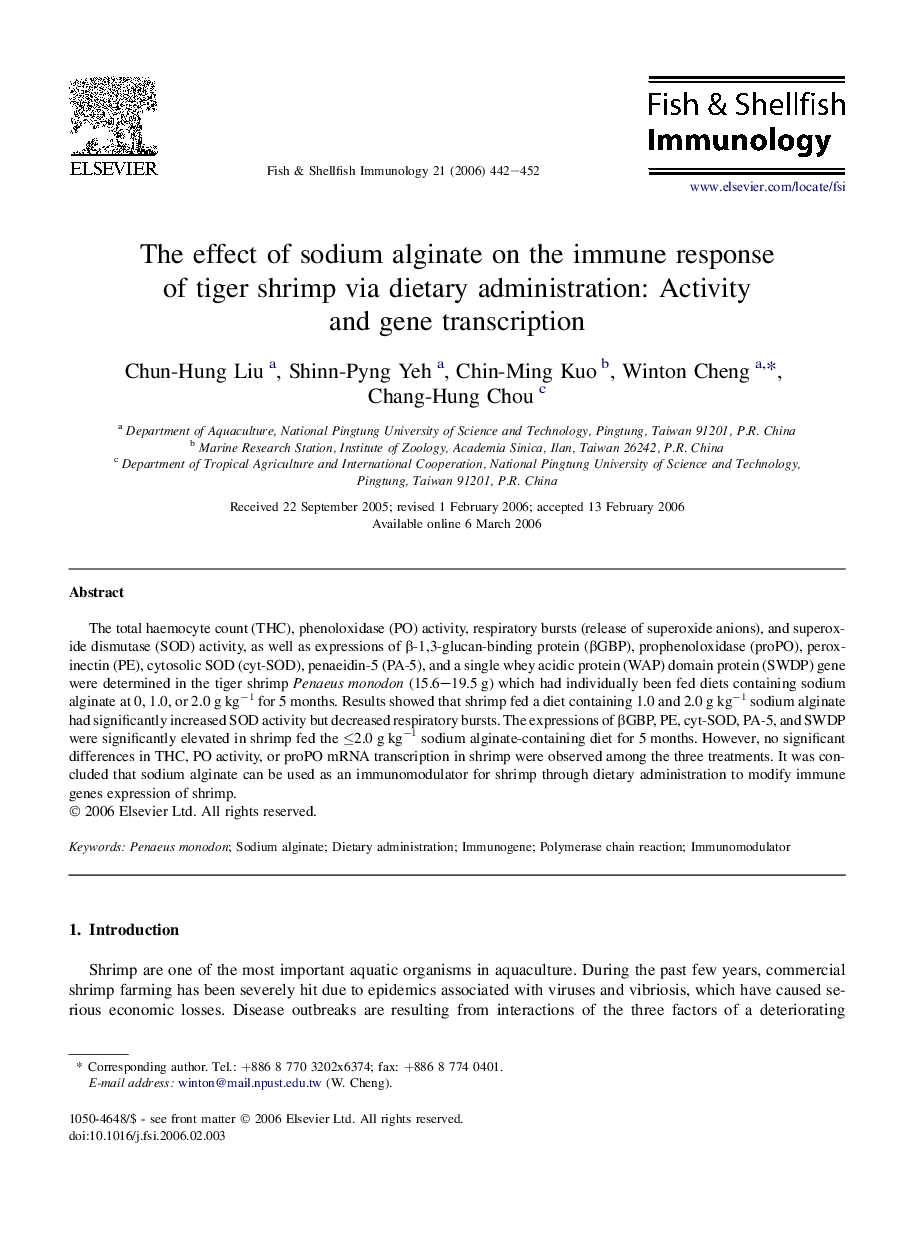| Article ID | Journal | Published Year | Pages | File Type |
|---|---|---|---|---|
| 2433780 | Fish & Shellfish Immunology | 2006 | 11 Pages |
The total haemocyte count (THC), phenoloxidase (PO) activity, respiratory bursts (release of superoxide anions), and superoxide dismutase (SOD) activity, as well as expressions of β-1,3-glucan-binding protein (βGBP), prophenoloxidase (proPO), peroxinectin (PE), cytosolic SOD (cyt-SOD), penaeidin-5 (PA-5), and a single whey acidic protein (WAP) domain protein (SWDP) gene were determined in the tiger shrimp Penaeus monodon (15.6–19.5 g) which had individually been fed diets containing sodium alginate at 0, 1.0, or 2.0 g kg−1 for 5 months. Results showed that shrimp fed a diet containing 1.0 and 2.0 g kg−1 sodium alginate had significantly increased SOD activity but decreased respiratory bursts. The expressions of βGBP, PE, cyt-SOD, PA-5, and SWDP were significantly elevated in shrimp fed the ≤2.0 g kg−1 sodium alginate-containing diet for 5 months. However, no significant differences in THC, PO activity, or proPO mRNA transcription in shrimp were observed among the three treatments. It was concluded that sodium alginate can be used as an immunomodulator for shrimp through dietary administration to modify immune genes expression of shrimp.
